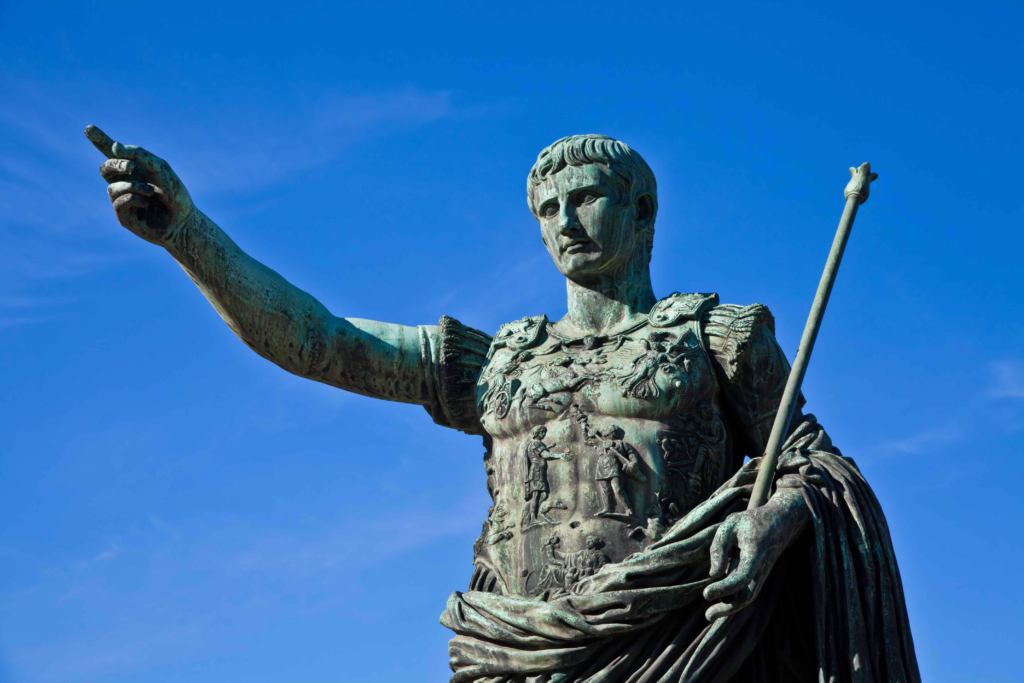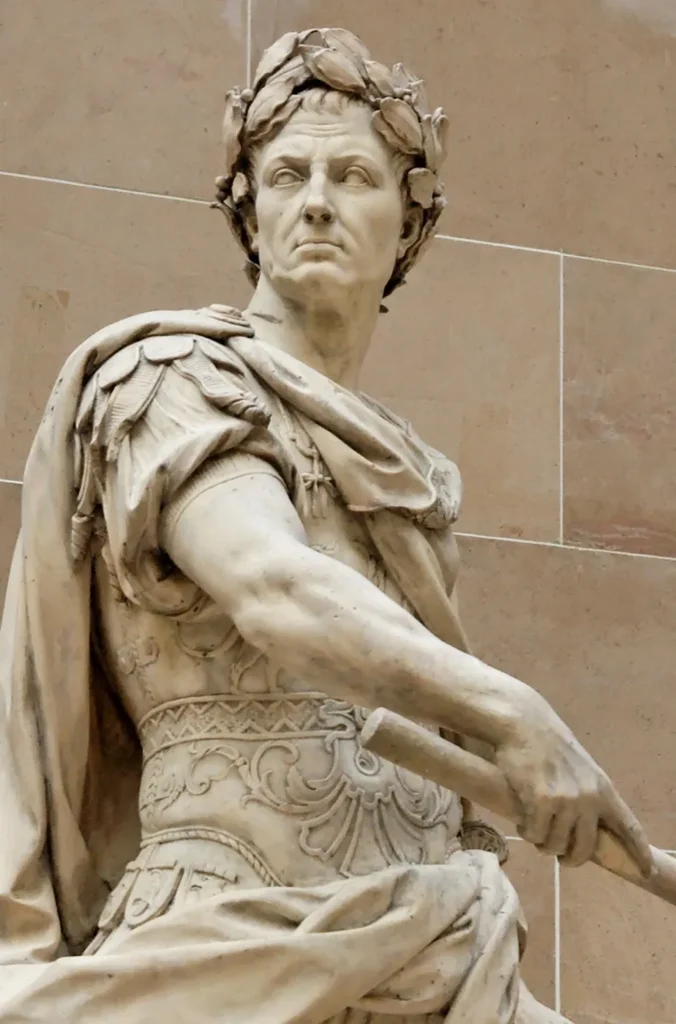Julius Caesar

Gaius Julius Caesar (100 BC – 44 BC) was a Roman general, statesman, and a pivotal figure in the transformation of the Roman Republic into the Roman Empire. Here’s a detailed look at his life and legacy:
Early Life
- Birth: Born on July 12, 100 BC, in Rome.
- Family: His family was of noble lineage but not wealthy. His father, also named Gaius Julius Caesar, died when Caesar was 16, and his mother, Aurelia, played a significant role in his upbringing.
Rise to Power
Military Career: Caesar began his military career in Asia and Cilicia. He was known for his bravery and strategic acumen.

Political Alliances: Formed the First Triumvirate in 60 BC with Pompey and Crassus, which dominated Roman politics
Gallic Wars: From 58 BC to 50 BC, Caesar led military campaigns in Gaul (modern-day France), expanding Roman territory and gaining immense popularity and power

Civil War and Dictatorship
- Crossing the Rubicon: In 49 BC, Caesar defied the Senate’s orders and crossed the Rubicon River with his army, sparking a civil war.
- Victory: He defeated Pompey and his allies, eventually becoming the dictator of Rome in 46 BC.
- Reforms: Implemented various social and governmental reforms, including the Julian calendar, land reforms, and granting citizenship to many residents of far regions of the Roman Republic.
Assassination
- Ides of March: On March 15, 44 BC, Caesar was assassinated by a group of senators, including Brutus and Cassius, who feared his growing power.
Legacy
- Impact: Caesar’s actions and reforms laid the foundation for the Roman Empire. His life and death have been immortalized in literature, art, and popular culture


I’m really inspired together with your writing abilities as smartly
as with the format for your blog. Is that this a paid subject or did you modify it
yourself? Either way keep up the nice high quality writing, it’s rare to
see a nice weblog like this one these days. Fiverr Affiliate!